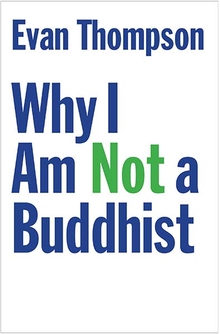
Look, given what a racket science has become in some places, that wouldn’t necessarily even be a source of pride any more. But never mind. What are people talking about when they say that a religion is “science-friendly”?
Here are some thoughts from the author of Why I am not a Buddhist (January 28, 2020):
Science can devolve into narrow-minded ideology no less than religion can, and religion can nurture and inspire science. Asking whether science and religion are compatible or incompatible is like asking whether art and science or art and religion are compatible or incompatible: it all depends on the larger culture that contains them.
Buddhist exceptionalism presents Buddhism as uniquely suited to the modern world, but we can sanitize any religion in this modernist way.
Evan Thompson, “Beyond Buddhist Exceptionalism” at Yale University Press Blog
Yes. “Theistic” evolutionists, for example, start with the premise that God wouldn’t “create” anything. That is really a message about God, not about nature, and it is bound to be a church-closer.
The “new atheists” recognize that religion and science can’t be separated in the way that Gould proposes, but their campaigns to stamp out religion in the name of science misunderstand the meaning-making activities of religion. Religions don’t explain the universe as science does; they create meaning through rituals, communities, textual traditions, and ways of understanding life’s great events—birth, aging, sickness, trauma, extraordinary states of consciousness, and death. The new atheists also misunderstand science. They fail to see that when science steps back from experimentation in order to give meaning to its results in terms of grand stories about where we come from and where we’re going—the narratives of cosmology and evolution—it cannot help but become a mythic form of meaning-making and typically takes the structures of its narratives from religion.
Buddhist modernism encourages a kind of false consciousness: it makes people think that if they embrace Buddhism or just pick out its supposedly nonreligious parts, they’re being “spiritual but not religious,” when unbeknownst to them religious forces are impelling them.
Evan Thompson, “Beyond Buddhist Exceptionalism” at Yale University Press Blog
Author Evan Thompson is a professor of philosophy at the University of British Columbia and a fellow of the Royal Society of Canada.
The guy makes a lot of sense. What many people seem to like about Buddhism is that they feel free to take it or leave it and make it up as they go along. Not at all what the Buddha had in mind, we may be sure.
Hat tip: Philip Cunningham
See also: Faith: Even mathematics depends on some unprovable assumptions David Hilbert wanted all mathematics to be proved by logical steps. Kurt Gödel showed that no axiomatic system could be complete and consistent at the same time:
A cautious defense of panpsychism (everything is conscious) as an alternative to naturalist despair of the whole field of consciousness
and
What great physicists have said about immateriality and consciousness